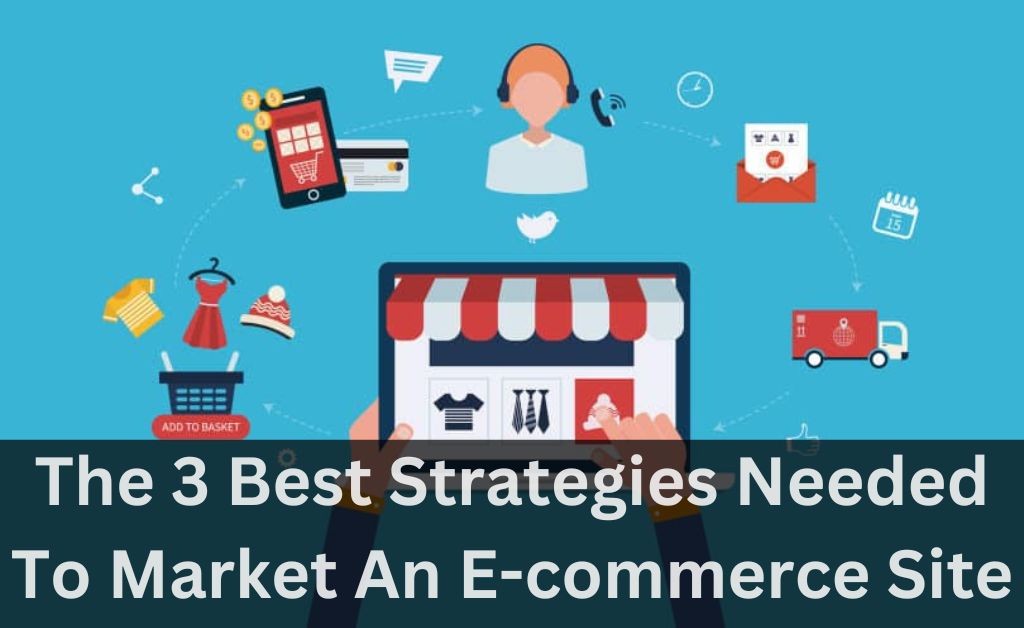The 3 Best Strategies Needed To Market An E-commerce Site

Did you know that effective marketing can make or break an ecommerce site? In today’s competitive digital landscape, it’s crucial to grab the attention of potential customers and stand out from the crowd. How can you ensure that your ecommerce site becomes a go-to destination for online shoppers? The answer lies in the implementation of well-crafted marketing strategies.
You’ll need these strategies to take action and unlock the full potential of your ecommerce venture. In this outline, we will explore the most important proven strategies to market your ecommerce site effectively.
1 – Research and analysis
In order to effectively market your ecommerce site, conducting thorough research and analysis is essential.
Start by conducting comprehensive market research to identify your target audience by using a digital marketing services agency. Analyze demographic data, online behavior, and purchasing preferences of potential customers.
Identify your main competitors in the digital marketing services space. Analyze their strategies, website design, product offerings, pricing, and customer reviews. By understanding your competitors’ strengths and weaknesses, you can identify opportunities for differentiation.
Stay updated with the latest market trends and shifts in consumer behavior related to digital marketing services. Monitor industry publications, forums, and social media discussions to gather insights.
2 – Search Engine Optimization (SEO)
Search Engine Optimization (SEO) plays a crucial role in driving organic traffic to your ecommerce site. By optimizing your website and content, you can improve your search engine rankings and increase visibility.
Conduct comprehensive keyword research to identify relevant keywords and phrases that your target audience uses to search for digital marketing services. Optimize your website content, including product descriptions, meta tags, URLs, headers, and internal links, with these targeted keywords.
Ensure that your website is properly optimized for search engines. This involves optimizing meta tags, creating descriptive URLs, using relevant headers, and implementing schema markup. Provide high-quality, informative, and engaging content that satisfies user intent and includes targeted keywords.
Develop a content marketing strategy that focuses on creating valuable and informative content for your audience. Publish blog posts, articles, and guides that address their pain points and offer solutions. Incorporate relevant keywords naturally into your content to enhance its visibility in search results.
3 – Use social media marketing
Social media marketing is a powerful tool for promoting your ecommerce site and engaging with your target audience. It allows you to build brand awareness, drive traffic to your website, and foster meaningful connections with potential customers.
Determine which social media platforms align with your target audience and business objectives. Focus your efforts on platforms such as Facebook, Instagram, Twitter, LinkedIn, or others that are popular among your potential customers.
Develop a content strategy that resonates with your target audience. Create visually appealing and compelling content, including images, videos, infographics, and articles that provide value, entertain, or educate your audience. Encourage sharing and engagement through interactive posts and contests.
Collaborate with influencers in your industry or niche to expand your reach and tap into their established audience base. Identify influencers who align with your brand values and have a genuine connection with their followers.

 Luther of Keezy.co: Digital Marketing Wizardry
Luther of Keezy.co: Digital Marketing Wizardry  How to Get Started With CTV Advertising in Albuquerque, NM?
How to Get Started With CTV Advertising in Albuquerque, NM?  Strategies for Optimizing Email Monetization Performance
Strategies for Optimizing Email Monetization Performance  4 Ways to Jazz Up Your E-Commerce Site
4 Ways to Jazz Up Your E-Commerce Site  How to Monetize a Low-Traffic Website?
How to Monetize a Low-Traffic Website?  Maximizing Your Reach: How Digital Marketing Can Boost Your Home Service Business
Maximizing Your Reach: How Digital Marketing Can Boost Your Home Service Business